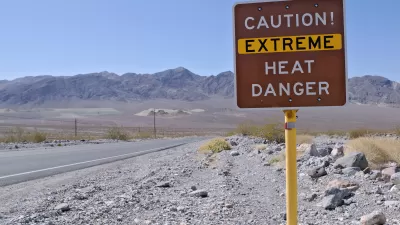While Congress continues a spectacle of inertia and citizens grapple with a recovery fraught with inequity and conflict, local initiatives are taking control of the future direction of communities around the United States, according to a new survey.
Ronald Brownstein notes a trend in the most recent Allstate/National Journal Heartland Monitor Poll: Americans of all political stripes "believe that progress on the biggest challenges facing the country is more likely to come from local rather than national institutions."
Brownstein summarizes the question asked by the survey thusly: "we asked Americans whether they believed 'new ideas and solutions' for responding to 'the biggest economic and social challenges facing America' were more likely to emerge from 'state and local institutions' like 'government, businesses, and volunteer or community organizations,' or from 'national institutions like the federal government, national businesses, and major nonprofit organizations.'"
Next, Brownstein summarizes the survey's findings: "Almost four-fifths of Republicans and nearly three-fourths of independents picked local institutions. Not surprisingly, with their party holding the White House, Democrats were somewhat more inclined to look to national institutions for answers; but, even so, a solid 56 percent of them expected local institutions to produce the best new thinking."
Brownstein goes on to describe the current era as "a golden age of local initiative" that is often overshadowed by dysfunction and stalemate at the national level. Brownstein also cites examples curated by the ongoing "Next Economy" series, produced jointly by The Atlantic and the National Journal.
FULL STORY: AN IMPULSE BECOMING A MOVEMENT

Maui's Vacation Rental Debate Turns Ugly
Verbal attacks, misinformation campaigns and fistfights plague a high-stakes debate to convert thousands of vacation rentals into long-term housing.

Planetizen Federal Action Tracker
A weekly monitor of how Trump’s orders and actions are impacting planners and planning in America.

In Urban Planning, AI Prompting Could be the New Design Thinking
Creativity has long been key to great urban design. What if we see AI as our new creative partner?

Cal Fire Chatbot Fails to Answer Basic Questions
An AI chatbot designed to provide information about wildfires can’t answer questions about evacuation orders, among other problems.

What Happens if Trump Kills Section 8?
The Trump admin aims to slash federal rental aid by nearly half and shift distribution to states. Experts warn this could spike homelessness and destabilize communities nationwide.

Sean Duffy Targets Rainbow Crosswalks in Road Safety Efforts
Despite evidence that colorful crosswalks actually improve intersection safety — and the lack of almost any crosswalks at all on the nation’s most dangerous arterial roads — U.S. Transportation Secretary Duffy is calling on states to remove them.
Urban Design for Planners 1: Software Tools
This six-course series explores essential urban design concepts using open source software and equips planners with the tools they need to participate fully in the urban design process.
Planning for Universal Design
Learn the tools for implementing Universal Design in planning regulations.
Appalachian Highlands Housing Partners
Gallatin County Department of Planning & Community Development
Heyer Gruel & Associates PA
Mpact (founded as Rail~Volution)
City of Camden Redevelopment Agency
City of Astoria
City of Portland
City of Laramie




























